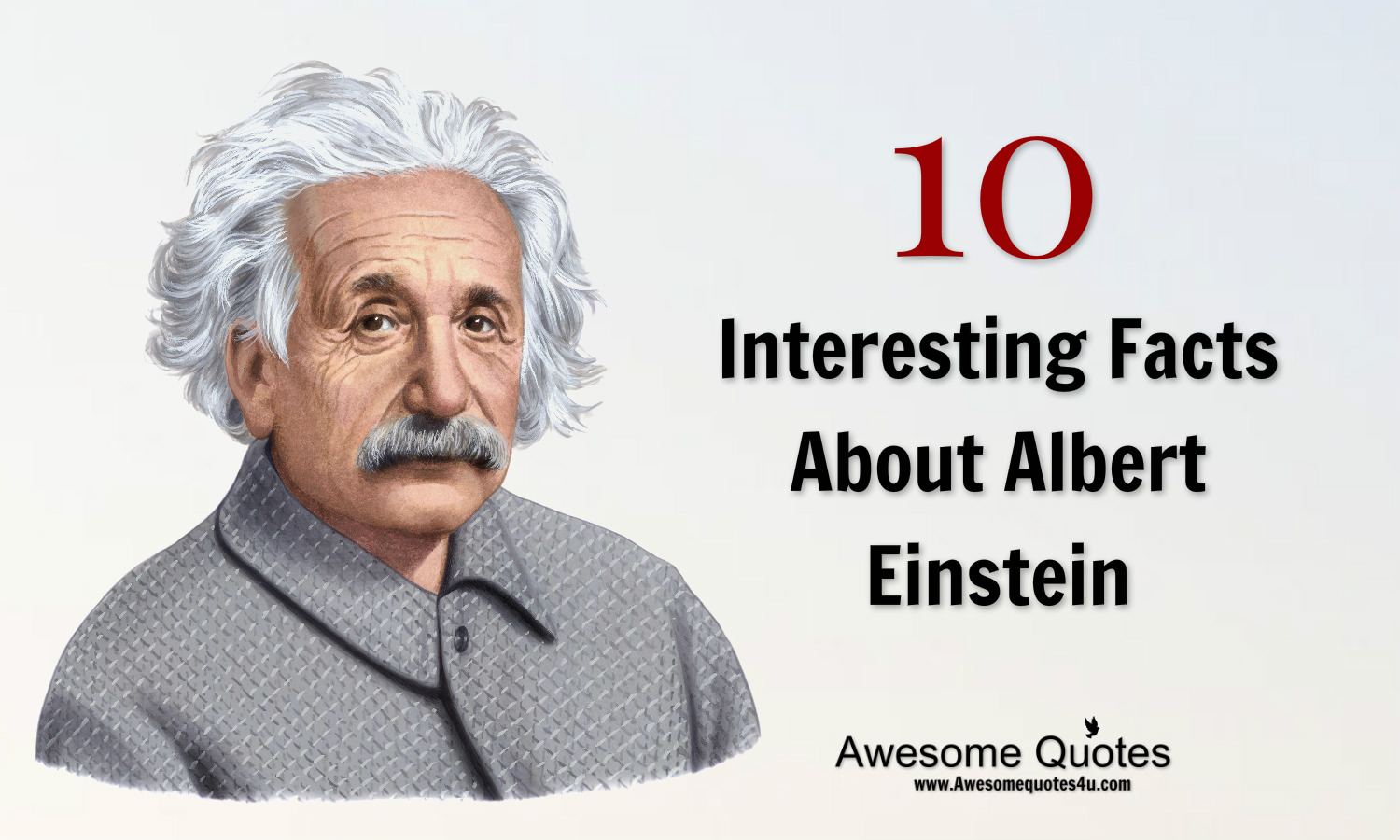Albert Einstein, a name synonymous with genius, revolutionized our understanding of time, space, and energy. Born on March 14, 1879, in Ulm, Germany, Einstein's contributions to physics and mathematics are nothing short of extraordinary. His most famous equation, E=mc², changed the course of science, but there is much more to this brilliant mind than just his theories. In this article, we will explore some fascinating fun facts about Albert Einstein that not only highlight his genius but also reveal his quirks, personal life, and enduring legacy.
Einstein's journey from a curious child to a Nobel Prize-winning physicist is filled with intriguing anecdotes and lesser-known details. Not only did he shape modern physics, but he also had a profound impact on popular culture and the arts. His unconventional approach to life and science is what makes him a fascinating figure even today.
Join us as we delve into the fun facts about Albert Einstein, shedding light on the man behind the iconic mustache and the groundbreaking theories that continue to influence science and philosophy. Whether you're a science enthusiast or just curious about this remarkable individual, you'll find something captivating in the life of Albert Einstein.
Read also:Exploring The Life Of Jeff Bezos Exwife Mackenzie Scotts Journey And Philanthropic Impact
Table of Contents
- Biography of Albert Einstein
- Early Life and Education
- Scientific Contributions
- Personal Life and Interests
- Quirks and Hobbies
- Einstein in Pop Culture
- Legacy of Albert Einstein
- Conclusion
Biography of Albert Einstein
| Data | Detail |
|---|---|
| Name | Albert Einstein |
| Birth Date | March 14, 1879 |
| Birth Place | Ulm, Kingdom of Württemberg, German Empire |
| Death Date | April 18, 1955 |
| Nationality | German, later Swiss and American |
| Famous For | Theory of Relativity, E=mc² |
| Awards | Nobel Prize in Physics (1921) |
Early Life and Education
Einstein's early life was marked by curiosity and a passion for learning. Despite struggling in some subjects, particularly languages, he excelled in mathematics and science. Here are some key points about his early years:
- Einstein's family moved to Munich when he was an infant, where he was exposed to a variety of cultural influences.
- He showed an early interest in science and mathematics, often challenging conventional ideas.
- Einstein's educational journey included attendance at the Polytechnic Institute in Zurich, where he studied physics and mathematics.
Scientific Contributions
Albert Einstein's contributions to science are monumental and have shaped our understanding of the universe. Here are some of his most significant scientific achievements:
- Theory of Relativity: This groundbreaking theory, which includes both special and general relativity, revolutionized the concept of space and time.
- Photoelectric Effect: Einstein's explanation of the photoelectric effect earned him the Nobel Prize in Physics in 1921 and laid the foundation for quantum theory.
- Brownian Motion: His work on Brownian motion provided empirical evidence for the existence of atoms and molecules.
Personal Life and Interests
Einstein's personal life was as intriguing as his scientific contributions. He had a deep love for music and played the violin, often finding solace in its melodies. Here are some highlights of his personal life:
- Einstein was married twice, first to Mileva Marić and later to Elsa Löwenthal.
- He had three children: Lieserl, Hans Albert, and Eduard.
- Einstein was an advocate for civil rights and was involved in various social and political causes.
Quirks and Hobbies
Einstein's personality was filled with quirks that made him a unique figure in the scientific community:
- He was known for his disheveled appearance, often appearing in a wrinkled suit and unkempt hair.
- Einstein had a love for sailing, despite not knowing how to swim.
- He often made playful remarks and had a great sense of humor, famously saying, "Imagination is more important than knowledge."
Einstein in Pop Culture
Albert Einstein's influence extends beyond the realm of science; he has become a cultural icon:
- His image is instantly recognizable, often used to represent genius and intellect.
- Einstein has been depicted in numerous films, books, and documentaries, showcasing both his scientific achievements and personal life.
- He inspired various works of art and music, highlighting his impact on popular culture.
Legacy of Albert Einstein
Einstein's legacy continues to shape the fields of science and education:
Read also:Jamerrill Stewart News
- His theories laid the groundwork for advancements in physics, astronomy, and technology.
- Einstein's approach to problem-solving and creative thinking remains influential in educational systems worldwide.
- He is remembered not only as a brilliant scientist but also as a humanitarian who advocated for peace and social justice.
Conclusion
In conclusion, the fun facts about Albert Einstein reveal a multifaceted individual whose contributions to science and society are immeasurable. His journey from a curious child to a pioneering physicist serves as an inspiration for generations to come. As we reflect on his life, we are reminded of the importance of creativity, curiosity, and compassion in our pursuit of knowledge.
We encourage you to share your thoughts on Albert Einstein and his impact on science and culture. If you found this article interesting, please consider leaving a comment or sharing it with others. Additionally, explore our other articles to learn more about remarkable figures in history.
Thank you for reading, and we hope to see you back on our site for more engaging content!
Article Recommendations


